Speakers
THE HONORABLE JOHN PAUL STEVENS
MARCH 6, 2009
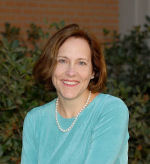
Diane Marie Amann
Professor - University of California, Davis, School of Law
Diane Marie Amann is a Professor of Law and Director of the California International Law Center at King Hall, University of California, Davis, School of Law. She served as a law clerk to Justice Stevens in October Term 1988, having clerked the previous two years for U.S. District Court Judge Prentice H. Marshall in Chicago. Professor Amann’s scholarship, which has appeaered in English, French, and Italian, examines the interaction of constitutional and other domestic law with foreign and international legal regimes. After publishing a symposium article, John Paul Stevens, Human Rights Judge, 74 FORDHAM L. REV. 1569 (2006), she began research onJustice and John Paul Stevens, a biography that will focus on Stevens’s jurisprudence of liberty, equality, and security.
Professor Amann holds a Dr.h.c. in law from Universiteit Utrecht in the Netherlands, a J.D., cum laude, from Northwestern University School of Law in Chicago, an M.A. in political science from the University of California, Los Angeles, and a Bjama.S. in journalism, with highest honors, from the University of Illinois at Urbana-Champaign. She has been aprofesseur invite at the Faculte' de droit, Universite de Paris 1 (Pantheon-Sorbonne), and a Visiting Professor at University of California, Berkeley, School of Law, the University of California, Los Angeles, School of Law, and the Irish Centre for Human Rights at the National University Ireland-Galway. She is the faculty advisor for this symposium in honor of Justice Stevens.
http://www.law.ucdavis.edu/faculty/Amann/
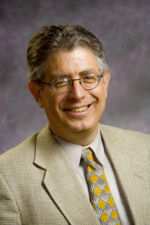
Daniel A. Farber
Professor and Director - Environmental Law Program, University of California, Berkeley, School of Law
Daniel A. Farber is the Sho Sato Professor of Law, Chair of the Energy and Resources Group, and Co-Director of the Environmental Law Program at the University of California, Berkeley, School of Law. Professor Farber received a B.A. in philosophy, with high honors, in 1971, an M.A. in sociology in 1972, and a J.D., summa cum laude, all from the University of Illinois. He served as a law clerk to Justice Stevens in October Term 1976. Professor Farber was previously a faculty member of the University of Illinois Law School and the University of Minnesota Law School. He also has served as a Visiting Professor at Harvard Law School, Stanford Law School, and the University of Chicago Law School.
Professor Farber has written many articles and books on environmental and constitutional law. Among his dozen books are Judgment Calls: Politics and Principle in Constitutional Law (2008) (with Suzanna Sherry), Eco-Pragmatism: Making Sensible Environmental Decision in an Uncertain World (1999), and Disasters and the Law: Katrina and Beyond (2006) (with Jim Chen).
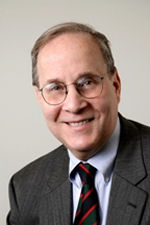
Eugene R. Fidell
President - National Institute of Military Justice; Florence Rogatz Visiting Lecturer in Law, Yale Law School
Eugene R. Fidell is President of the National Institute of Military Justice, Florence Rogatz Visiting Lecturer in Law at Yale Law School, and Adjunct Professor at the American University, Washington College of Law. He also is of counsel at Feldesman Tucker Leifer Fidell LLP in Washington, D.C.
Mr. Fidell received his bachelor’s degree from Queens College in 1965, where he graduated cum laude and was elected to Phi Beta Kappa. He earned his LL.B. from Harvard Law School in 1968. After law school, Mr. Fidell served as a judge advocate in the U.S. Coast Guard from 1969 to 1972.
Mr. Fidell practices in the areas of general litigation, appeals, federal administrative law, and military law, a field in which he has written extensively and serves as a commentator for national and foreign news media. He has taught military law at Yale Law School, Harvard Law School, and the American University, Washington College of Law.
Mr. Fidell is a member of the ABA’s Task Force on Treatment of Enemy Combatants, is a life member of the American Law Institute, and has served on the ABA’s and Standing Committee on Law and National Security, the Code Committee on Military Justice, the Advisory Board on the Investigative Capability of the Department of Defense, and the Rules Advisory Committee of the U.S. Court of Appeals for the Armed Forces.
http://www.law.yale.edu/faculty/EFidell.htmhttp://www.wcl.american.edu/faculty/fidell/
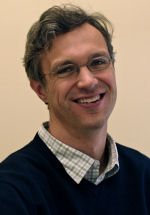
Jeffrey L. Fisher
Professor & Co-Director - Supreme Court Litigation Clinic, Stanford Law School
Jeffrey L. Fisher is an Associate Professor of Law at Stanford Law School and Co-Director of its Supreme Court Litigation Clinic. His academic and clinical work runs the gamut of federal and constitutional law but has an emphasis on criminal procedure issues. Professor Fisher has argued eleven cases in the U.S. Supreme Court, including successful representation of the petitioners inBlakely v. Washington and Crawford v. Washington. The National Law Journal has named him one of the 100 most influential lawyers in the country.
Professor Fisher served as a law clerk to Justice Stevens in October Term 1998, having also clerked for Judge Stephen Reinhardt of the U.S. Court of Appeals for the Ninth Circuit.
http://www.law.stanford.edu/directory/profile/164/Jeffrey%20L.%20Fisher/
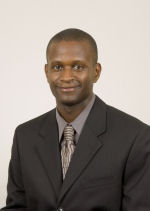
Jamal Greene
Professor - Columbia Law School
Jamal Greene is an Associate Professor of Law at Columbia Law School. As a constitutional law expert, Professor Greene focuses on the political construction of constitutional law. He teaches courses in Constitutional Law and Constitutional Theory.
Professor Greene received his A.B. in Economics from Harvard University in 1999. He then worked as reporter for three years at Sports Illustrated. Professor Greene earned his J.D. from Yale University in 2005, where he was an articles editor for the Yale Law Journal. Upon graduation, he clerked for Judge Guido Calabresi of the U.S. Court of Appeals for the Second Circuit. He clerked for Justice Stevens in October Term 2006.
Professor Greene is the recipient of the Burton H. Brody Prize for best paper on constitutional privacy, the Smith-Doheny Legal Ethics Writing Prize, and the Edgar M. Cullen Prize for the best paper by a first-year law student. His recent publications include: Selling Originalism, 97 GEO. L.J. forthcoming (2009); Giving the Constitution to the Courts, 117 YALE L.J. 886 (2008); and Beyond Lawrence: Metaprivacy and Punishment, 115 YALE L.J. 1862 (2006).
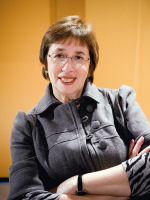
Linda Greenhouse
Former Supreme Court correspondent - New York Times; Knight Distinguished Journalist in Residence, Joseph M. Goldstein Senior Fellow in Law -Yale Law School
Linda Greenhouse covered the U.S. Supreme Court for The New York Times between 1978 and 2008. In January 2009 she became the Knight Distinguished Journalist in Residence and Joseph M. Goldstein Senior Fellow in Law at Yale Law School.
Ms. Greenhouse received several major journalism awards during her forty year career at The Times, including the Pulitzer Prize (1998) and the Goldsmith Career Award for Excellence in Journalism from Harvard University's Kennedy School (2004). In 2002, the American Political Science Association gave her its Carey McWilliams Award for "a major journalistic contribution to our understanding of politics." In 2008, she received the annual award for constitutional commentary from the non-partisan Constitution Project. Her biography of Justice Harry A. Blackmun, Becoming Justice Blackmun, was published in 2005.
Ms. Greenhouse is a fellow of the American Academy of Arts and Sciences, where she serves on the council, and is one of two non-lawyer honorary members of the American Law Institute, which in 2002 awarded her its Henry J. Friendly Medal. She is a member of the American Philosophical Society, which in 2005 awarded her its Henry Allen Moe Prize for writing in the humanities and jurisprudence. She also serves on the advisory council of the Schlesinger Library on the History of Women in America, at the Radcliffe Institute for Advanced Study at Harvard University.
For two academic years, 2004 and 2005, she was a Phi Beta Kappa Visiting Scholar, lecturing and teaching at colleges and universities around the country. She also lectures frequently to law school and judicial audiences and has been awarded nine honorary degrees.
She is a 1968 graduate of Radcliffe College (Harvard University), where she was elected to Phi Beta Kappa. She earned a Master of Studies in Law degree from Yale Law School (1978), which she attended on a Ford Foundation fellowship.
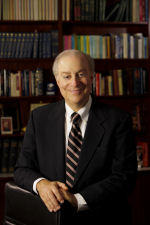
David F. Levi
Dean -Duke University School of Law
David F. Levi became the fourteenth dean of Duke University School of Law on July 1, 2007. Prior to his appointment, he was the Chief U.S. District Judge for the Eastern District of California with chambers in Sacramento. He was appointed U.S. Attorney by President Ronald Reagan in 1986 and a U.S. District Judge by President George H. W. Bush in 1990.
A native of Chicago, Dean Levi earned his A.B. in history and literature,magna cum laude, from Harvard College. He entered Harvard’s graduate program in history, specializing in English legal history and serving as a teaching fellow in English history and literature. He graduated Order of the Coif in 1980 from Stanford Law School, where he was also president of the Stanford Law Review. Following graduation, he was a law clerk to Judge Ben C. Duniway of the U.S. Court of Appeals for the Ninth Circuit, and then to Justice Lewis F. Powell, Jr., of the U.S. Supreme Court.
He has served as chair of two Judicial Conference committees by appointment of the Chief Justice. He was chair of the Civil Rules Advisory Committee (2000-2003) and chair of the Standing Committee on the Rules of Practice and Procedure (2003-2007). He was the first president and a founder of the Milton L. Schwartz American Inn of Court, now the Schwartz-Levi American Inn of Court, at the University of California, Davis, School of Law (Martin Luther King, Jr. Hall). Dean Levi is a member of the Council of the American Law Institute (ALI), was an advisor to the ALI’s Federal Judicial Code Revision Project, and currently serves as an advisor to the Aggregate Litigation project. He was chair of the Ninth Circuit Task Force on Race, Religious, and Ethnic Fairness and was an author of the report of the Task Force. He was president of the Ninth Circuit District Judges Association (2003-2005). In 2007, he was elected a fellow of the American Academy of Arts and Sciences.
Dean Levi is the co-author of Federal Trial Objections (James Publishing, 2002). At Duke University School of Law, he teaches courses on Judicial Behavior and Ethics.
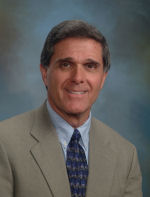
Kenneth A. Manaster
Professor, Santa Clara University School of Law
Kenneth A. Manaster is a Professor of Law at Santa Clara University School of Law. He received his bachelor’s degree from Harvard College in 1963 and his J.D. from Harvard Law School in 1966. After graduating, Professor Manaster studied in Peru on a Fulbright Fellowship, served as a law clerk for Judge Bernard M. Decker of the U.S. District Court in Chicago, and worked at the private firm now known as Sidley Austin LLP. In 1970, he became an assistant attorney general of Illinois, and headed the Chicago office of the attorney general’s Environmental Control Division.
Professor Manaster joined the Santa Clara law faculty in 1972. He specializes in environmental law, but also teaches courses in administrative law and torts. He has taught environmental law courses at the University of California, Hastings College of the Law, the University of Texas, and Stanford Law School, and has served as a visiting scholar at Stanford Law School and Harvard Law School.
He has written numerous law review articles and books on environmental law and other subjects. He co-authored a treatise on State Environmental Law and co-edits a six volume treatise on California Environmental Law and Land Use Practice. He also wrote Illinois Justice: The Scandal of 1969 and the Rise of John Paul Stevens (2001).
Professor Manaster was a member of the Bay Area Air Quality Management District Hearing Board from 1973 to 1990, and served as its chair from 1978 to 1989. He also chaired the Public Advisory Committee to the U.S. Environmental Protection Agency’s study of toxic pollutants in the Santa Clara Valley. In addition to teaching, Professor Manaster works part-time as Counsel for the law firm Pillsbury Winthrop Shaw Pittman LLP in San Francisco.
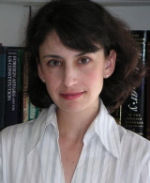
Deborah N. Pearlstein
Woodrow Wilson School for Public & International Affairs, Princeton University; former Director - Law & Security Program, Human Rights First
Deborah N. Pearlstein joined the Woodrow Wilson School for Public and International Affairs at Princeton University in 2007 as a Visiting Scholar in the Law and Public Affairs Program. A graduate of Harvard Law School, where she served as Articles Editor of theHarvard Law Review, Ms. Pearlstein clerked for Judge Michael Boudin of the U.S. Court of Appeals for the First Circuit. She clerked for Justice Stevens in October Term 1999.
Ms. Pearlstein’s scholarly interests include U.S. national security law and constitutional law, and her work has appeared in journals including theHarvard Law Review, Harvard Journal of Law & Policy, and Columbia Human Rights Law Review. She has taught courses in national security law, international human rights, and U.S. constitutional law at Stanford Law School and at Princeton University.
From 2003-2006, Ms. Pearlstein served as the founding director of the Law and Security Program at Human Rights First, where she led the organization's efforts in research, litigation, and advocacy surrounding U.S. detention and interrogation operations. Among other projects, Ms. Pearlstein: led the organization’s first monitoring mission to the U.S. Naval Base at Guantanamo Bay, Cuba; prepared a series of briefsamicus curiae to the U.S. Supreme Court; and co-authored multiple reports on the human rights impact of U.S. national security policy. Throughout her tenure, Ms. Pearlstein also worked closely with members of the military and intelligence communities, including launching a series of off-the-record workshops to address key policy challenges in U.S. counterterrorism efforts.
From 2000-2003, Ms. Pearlstein practiced law at the firm of Munger, Tolles & Olson LLP in California, where she litigated a range of public law issues, briefing and arguing cases in state and federal trial and appellate courts. In 2002, Ms. Pearlstein received the Voting Rights Award from the ACLU Foundation of Southern California for pro bono work on voting reform following the 2000 presidential election.
A frequent public speaker on security-related topics in U.S. constitutional and international law, Ms. Pearlstein has repeatedly testified before Congress on questions of U.S. detention and interrogation policy. Before embarking on a career in law, Ms. Pearlstein served in the White House from 1993-1995 as a Senior Editor and Speechwriter for President Bill Clinton.
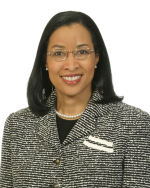
Teresa Wynn Roseborough
Chief Litigation Counsel - MetLife, New York; former Deputy Assistant Attorney General - Office of Legal Counsel
Teresa Wynn Roseborough is the Senior Chief Litigation Counsel at MetLife, Inc., where she leads a department of sixty-two associates and supervises MetLife’s litigation activities worldwide. MetLife is a leading provider of insurance and financial services with operations throughout the United States and the Latin America, Europe, and Asia pacific regions.
Before joining MetLife in April 2006, Ms. Roseborough’s practice focused on complex litigation matters at both the trial and appellate level, especially those involving constitutional law, class actions, telecommunications law, and government regulation. She participated in briefing and arguing numerous issues in state and federal courts around the country and in the U.S. Supreme Court. Ms. Roseborough served as one of the principal attorneys for the Gore campaign in the litigation associated with the 2000 Presidential election.
Ms. Roseborough serves on the Executive Committees of the State Bar of Georgia’s Appellate Section, the ABA Council of Appellate Lawyers, and the U.S. Supreme Court Historical Society. She is also a member of the State Bar of Georgia’s Board of Bar Examiners. In addition to serving on the Board of Directors of the American Constitution Society, Ms. Roseborough is a member of the Board of Advisors for the Center for Civil Rights at the University of North Carolina and of the Board of Directors for the Lawyers’ Committee for Civil Rights.
In 2003, Ms. Roseborough was chosen by American Lawyer magazine as one of the forty-five highest-performing members of the private bar under the age of forty-five in the magazine’s cover story feature, "45 Under 45."
From 1994-1996, Ms. Roseborough served as Deputy Assistant Attorney General in the Office of Legal Counsel of the U.S. Department of Justice. She served as a law clerk for Justice Stevens in October Term 1987, having clerked the previous year for Judge James Dickson Phillips of the U.S. Court of Appeals for the Fourth Circuit.
Ms. Roseborough is a frequent speaker at local and national seminars. She has been a guest on CNN’s "Burden of Proof" and "Larry King Live," on Fox News, and on MSNBC as a constitutional law expert.
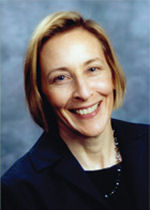
Elisabeth Semel
Clinical Professor of Law, Director - Death Penalty Clinic, University of California, Berkeley, School of Law
After graduating from University of California, Davis, School of Law, Elisabeth Semel became a deputy public defender. In 1980, she entered private practice and has defended criminal cases in the state and federal courts with an emphasis on representation at the trial level, including homicides and capital cases. In 1997, Semel left private practice to serve as the director of the American Bar Association Death Penalty Representation Project in Washington, D.C.
Professor Semel joined the faculty of the University of California, Berkeley, School of Law in 2001, as the first Director of its Death Penalty Clinic. In that capacity, she represents clients under sentence of death in states such as Alabama and California, and engages in related litigation, such as amicus curiae briefs, petitions for writs of certiorari, clemency petitions, and pretrial motions, in capital cases. Professor Semel and her students have prepared amicus curiae briefs that were filed in the U.S. Supreme Court in several death penalty cases, includingMiller-El v. Cockrell, Miller-El v. Dretke, and Snyder v. Louisiana (all dealing with race discrimination in jury selection).
Professor Semel has written numerous articles about criminal defense practice. Beginning in 2003, her annual annotated summaries of cases dealing with Batson v. Kentucky (race or gender discrimination in jury selection) have been posted electronically and included in various criminal defense publications. She frequently provides commentary in the mainstream media on issues relating to the rights of individuals accused of crime, particularly those facing the death penalty.
Professor Semel has received many awards, including the Distinguished Alumni Award (UC Davis School of Law, 2000), John Dewey Award for Distinguished Public Service (Bard College, 1997), the Marshall Stern Award for Legislative Advocacy (NACDL, 1996), the Civil Rights Award (San Diego League of Women Voters, 1995) and the E. Stanley Conant Award for Protecting the Rights of the Indigent Accused (Defender Programs of San Diego, 1982).
http://www.law.berkeley.edu/php-programs/faculty/facultyProfile.php?facID=1108
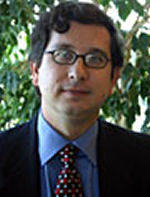
Andrew Siegel
Associate Professor of Law - Seattle University School of Law
Andrew Siegel joined Seattle University School of Law as an Associate Professor of Law in 2007, after having taught for five years at the University of South Carolina, School of Law. Before entering the legal academy, Professor Siegel served as a law clerk for Judge Pierre N. Leval of the U.S. Court of Appeals for the Second Circuit and, in October Term 2000, for Justice Stevens. He practiced as a litigation associate in the New York office of Wilmer, Cutler & Pickering LLP.
Professor Siegel is a graduate of Yale University, has an M.A. in history from Princeton University, and received his J.D. from New York University School of Law, where he was also an Executive Editor of the New York University Law Review.
Professor Siegel researches and writes about constitutional theory, contemporary constitutional and public law, American legal history, and criminal procedure. His recent articles include The Court Against the Courts: Hostility to Litigation as an Organizing Theme in the Rehnquist Court’s Jurisprudence, 84 TEX. L. REV. 1097 (2006), and Equal Protection Unmodified: Justice John Paul Stevens and the Case for Unmediated Constitutional Interpretation, 74 FORDHAM L. REV. 2339 (2006). He is currently at work on a variety of projects, including a history of the distinction between substantive and procedural due process and a cultural history of the first generation of American law schools.
While at the University of South Carolina School of Law, Professor Siegel chaired the American Bar Association’s South Carolina Death Penalty Assessment Team and served as a member of the Young Scholars and Program Committees of the Southeastern Association of Law Schools. He is also a frequent commentator on constitutional issues and the U.S. Supreme Court for both local and national news organizations. His articles for the popular press include Nice Disguise: Alito’s Frightening Geniality (The New Republic, 2005).
http://www.law.seattleu.edu/x3003.xml
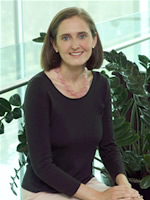
Kathryn Watts
Professor - University of Washington School of Law
Kathryn Watts joined the law school faculty at the University of Washington in Seattle in 2007 as an Assistant Professor of Law. She teaches administrative law, constitutional law, and Supreme Court decision making.
Professor Watts earned her J.D., summa cum laude, from Northwestern University School of Law, where she was awarded the John Paul Stevens Prize for Academic Excellence for graduating first in her law school class and the Raoul Berger Prize for her senior research paper on the history of general rulemaking grants. Following law school, Professor Watts clerked for Judge A. Raymond Randolph of the U.S. Court of Appeals for the D.C. Circuit. She served as a law clerk to Justice Stevens in October Term 2002. Professor Watts then practiced at Sidley Austin LLP in Chicago, specializing in appellate work and brief writing. She then joined Northwestern’s law school from 2005 to 2007 as a Visiting Assistant Professor, and taught administrative law, federal courts, and a Supreme Court seminar.
Professor Watts’s research focuses on interaction between the federal courts and executive actors, with a particular emphasis on interaction between the judiciary and administrative agencies. For example, she recently published Adapting to Administrative Law’s Erie Doctrine, 101 NW. U. L. REV. 997 (2007). She also is an author of Agency Rules with the Force of Law: The Original Convention, 116 HARV. L. REV. 467 (2002) (co-authored with Thomas W. Merrill), which received the ABA Section on Administrative Law Award for Distinguished Scholarship in 2003.

